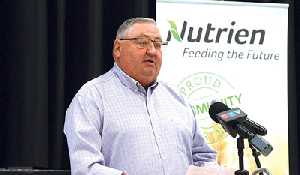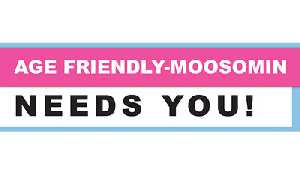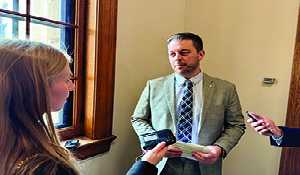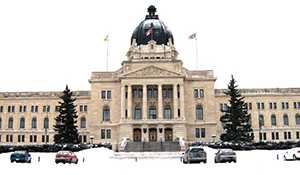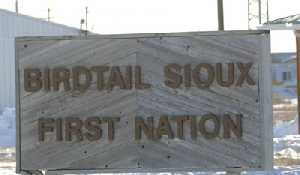CFIB says small businesses, farmers lack answers on carbon tax
After court upholds feds’ right to impose carbon tax
May 7, 2019, 1:43 am
Kevin Weedmark
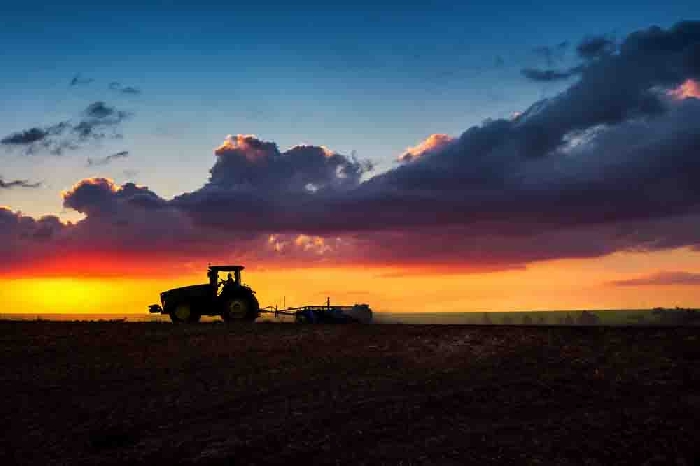

After the Saskatchewan Court of Appeal upheld the federal government’s right to impose the carbon tax Friday, the CFIB says there are still a lot of unanswered questions about the tax.
“As interveners in Saskatchewan’s court fight against the federal carbon tax, we are disappointed with the outcome, but we are encouraged by the split decision,” said CFIB director Aaron Wudrick.
“Carbon tax advocates had long argued this was a ‘slam dunk’ case but the robust dissent offered by two justices proves otherwise.
“The dissenting justices determined that the carbon tax is indeed a tax, that regulating emissions is provincial jurisdiction, and that Parliament cannot intrude upon it.
“Taxpayers are standing with Premier Scott Moe as Saskatchewan continues this fight by appealing to the Supreme Court of Canada. The CTF is committed to seeking intervener status in opposition to this tax.”
The Canadian Federation of Small Businesses says small business and farmers still don’t have all the answers on how the federal carbon tax will impact them, a month after it came into effect.
Nearly half of the revenues of the carbon tax will come from small businesses, but they can expect to receive just 7 per cent back in the form of yet-to-be-determined grants and rebates.
“Not only are we concerned that small firms have been given zero information on the rebates they have been promised, past programs targeted at small business have been incredibly poorly designed,” said Dan Kelly of the CFIB. “We hope the government doesn’t model the small business rebate program after the Low Carbon Economy Fund—the one that provided $12 million to Loblaws.”
“As things stand, small businesses are feeling like the cash cow helping to fund the rebates, exemptions and grants for everyone else,” said CFIB’s Marilyn Braun-Pollon, Vice-President, Prairie and Agri-business.
“We have always known the plan is patently unfair for small businesses which are not only being asked to absorb the majority of new costs, but also subsidize the larger rebates for households.
“It has also turned into a red tape nightmare for small firms,” said Braun-Pollon. “We have approached the government for clarification on dozens and dozens of questions we have been fielding from business owners, and we have been left with even more questions. Business owners already overwhelmingly oppose the carbon backstop plan. This is just adding to the frustration.
“What’s frustrating is households know right down to the cent what they’re getting in their rebate but business owners have been left in the dark. We’ve been asking for these details for months now without any answers.
“The government has had the time and money to allocate millions of dollars to big companies like Loblaws for retrofits but small businesses have heard nothing about the sliver of funding that was to be available to them. They’re asking business owners to pay 50 per cent of the carbon tax revenue and only get back seven per cent in the form of grants and rebates.
“Firms don’t know how to apply, which kind of projects will qualify, if they will have to pay the costs upfront and wait for reimbursement. It’s pretty hard for business owners to feel supported when these basic details are lacking.
“We’re also hoping this program isn’t modeled after the Low Carbon Economy Fund—the one that provided the $12 million to Loblaws. That fund is open to firms with as few as one employee, but they’re required to spend a minimum of $2 million to be eligible. That’s just ridiculous, to advertise a program for small businesses, and then require them to spend $2 million. That’s why we continue to ask the federal government to cancel the carbon tax and work with the provinces on a plan that will reduce emissions without negatively impacting not only businesses, but the overall economy. Businesses are frustrated. They feel like cash cows helping to fund the rebates and exemptions and grants for everyone else.”
Braun-Pollon said the carbon tax could affect the overall economy.
“We just released our small business outlook and some of the contributing factors to the lower optimism in April were this unfair and costly carbon tax and the trade uncertainty in agriculture, although we are pleased with the federal government announcement on help for canola producers.
“The carbon tax comes when business owners have been dealing with a barrage of significant cost increases including the federal government tax changes and the seven years of CPP hikes.”
She said the rules for farmers are still less than clear.
“When you look at the cardlock situation, where they finally decided at the 11th hour that yes, farm fuel purchased at cardlock locations will be exempt, but there was so much uncertainty around that, and then the exemption certificates, you have to fill it out, hand it on to your distributor who must be registered in order to pass down the exemption. There’s just a lot of unanswered questions about the types of businesses that are required to register. Distributors were asking if they are required to itemize the fuel charge on receipts and what sort of records they need to keep, and how would businesses prove how they used the fuel in the case of an audit.
“Farmers were promised their farming operations would be exempt. While we appreciate the fact that farm fuel is exempt from the carbon tax, we also know that farmers rely on natural gas and propane to heat their barns and dry their grain, and these are not exempt. We have recommended that the exemption be extended to natural gas and propane used for agriculture.
“The overall cost of the carbon tax is going to increase costs for the agriculture sector when their competitors don’t have this type of tax.
“It’s just going to make us that much less competitive. For agriculture, and for manufacturing, businesses that rely on exports, this makes them less competitive than the producers they are competing with for sales.”
Small business, meanwhile, faces an impact to the bottom line.
“The government says businesses can simply pass their added costs on to consumers, but 82 per cent of businesses in Saskatchewan say they can pass on only a quarter of the new costs. Half of businesses are going to have to eat all the new costs,” she said. “That’s on top of the CPP, on top of the federal tax changes. 81 per cent of businesses say this added cost of the carbon tax is going to make it harder for them to make further investments in reducing their emissions. At the end of the day it’s unfair, and it’s a red tape measure.
“The government has to look at just cancelling it, and working with the provinces instead.”

